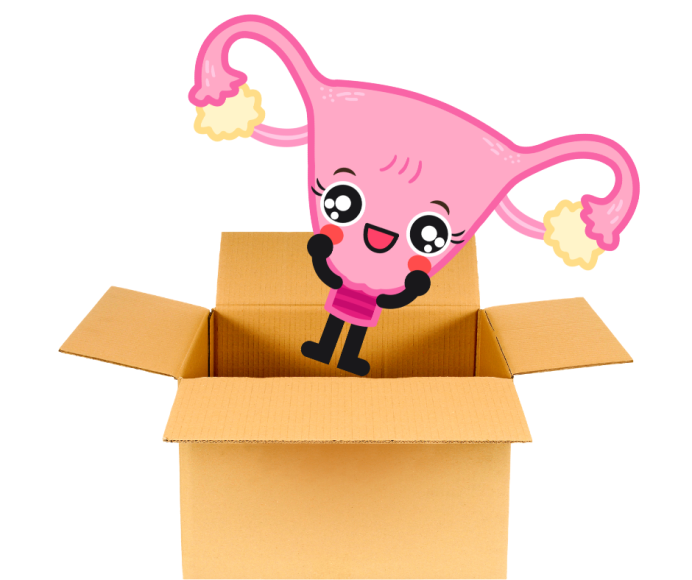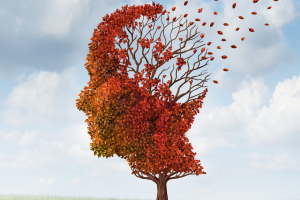Menopause.
A lovely stage of life when our bodies glitch, overheat, transform, and rebel.
It’s not all a struggle. After all, those pesky periods we’ve been dealing with since puberty finally stop …

But it’s a time to get to know ourselves all over again.
To make it even more fun, perimenopause exists.
What is Perimenopause?
Perimenopause is simply the time leading up to menopause. It usually starts in our 40’s but can start earlier. Perimenopause happens when our ovaries take a much deserved break. They stop making so much estrogen … which is the hormone that has ruled our lives, moods, emotions, and well-being since before middle school.
Our menstrual cycles may get all whack during this time. Periods may become longer and heavier (unless they become shorter and lighter). If you’re anything like me, your cycles have already been whack. For decades. This is just a new kind of whack.
What is Menopause?
Perimenopause becomes menopause once our cycles have ceased for a year. Our ovaries stop releasing eggs. However, because our bodies, for some reason, don’t want us to ever know what’s going on, some women’s periods stop for 5, 6, 7 months, and then they have a period again. Menopause is sketchy like that:
“I’m coming! Be there soon! On my way! … Ha! Nope! Just kidding.”
So actually, we don’t usually know when menopause has arrived. But if you haven’t bled in at least a year, there’s a good chance you’re in menopause.
This is a time when our bodies slow way down on estrogen production. Estrogen is needed to keep our reproductive systems working smoothly. During perimenopause, our bodies start to “pack up” reproductivity, and during menopause, our reproductive powers become a memory.

But menopause isn’t just about estrogen. At this time, our bodies slow production of progesterone and testosterone, too. It’s the change in hormonal production that brings on so many of our menopausal symptoms.
Along with our cycles getting all out of whack and then stopping, we also get to experience the joys of:
- hot flashes
- night sweats
- insomnia
- dryness in the vaginal area
- pain during sex
- changes in mood and even depression
- weight gain
- sleep issues
- hair loss or thinning hair
Or, we won’t. Because we are all beautifully different, and as a result, our symptoms will be as unique as we are.
The average age for menopause to settle in is 51, but it can happen earlier. Menopause lasts an average of 7 years. It isn’t always easy to know for sure if you’re truly in menopause. Most women guess based on symptoms, but doctors can run blood tests and take urine samples to see where your hormone levels are.
My Menopausal Experience
I had a total hysterectomy last August, so I knew when menopause hit. Even knowing I was in menopause, I still didn’t know what to expect. Symptoms can be all over the board. Hot flashes and night sweats haven’t been much of an issue for me, but my depression and anxiety are in flux. I haven’t had trouble sleeping, but my dreams have become so much more vivid. I’ve experienced weight gain, and have stiff and achy joints (especially when I first get out of bed or if I’ve been sitting for a while).
Most surprising of all was a symptom I never knew was related to menopause … itchiness. My body itches. Every. Blessed. Inch. Itches. I often scratch until I bleed. As estrogen slows, skin dries out (wrinkles, anyone?) and can get hyper-sensitive to dyes and fragrances. For me, the itching started before my hysterectomy (during perimenopause) and has only ratcheted up since. I have had to find a moisturizer without so many irritants, and I am also increasing my Vitamin C intake. I knew Vitamin C was good for keeping cold germs away, but I had no idea the role Vitamin C plays in skin health. Now I do. I’m just hoping it helps because incessant itching for months on end is enough to drive a menopausal woman crazy.
Another fun part of menopause is brain fog. Remember pregnancy brain? It’s like that, but worse. My short-term memory is like an open-weave sweater. Holes for days. I constantly tell my kids to remind me to do things, like drop the trash off that I just put into the back of my car, because by the time I’m down the driveway, I forget. Brain fog has gotten so bad that I have actually said to my kids, “Remind me … ” and forgotten how to finish the sentence.
 My heart also flutters and speeds up way more than it used to.
My heart also flutters and speeds up way more than it used to.
One would think that after getting the short end of the stick by bleeding vaginally every month for decades, the end of menstruation would be a time of relief, calm, and comfort.
But it isn’t.
And because no one really talks about it, we don’t know what to expect.
I am breaking that cycle. My kids (three boys and a girl) are no strangers to hearing me talk about periods. Now, they get to hear me talk about menopause. Because my daughter will go through it herself one day, and my sons will know people who are going through it, and should know how the other half lives. For the past 8 months, anytime I’ve done something I can’t explain (forgotten something, raged at something, cried over something, laughed maniacally at something, sweated for no reason) I’ve simply said “menopause” with a shrug, and moved on. Menopause lingers, so these glitches will be around for a while. May as well get comfortable with them.
I feel like menopause is something we don’t really understand until we’re on the other side of it, which is why talking about it is so important. Because we should know what to expect before it ever happens. While in the grips of menopause, we should have a solid understanding of what’s happening to our bodies, even if we can’t predict which symptoms will hit when, or for how long.
So let’s talk. Menopause already takes up a whole lot of space in our middle-aged existence, let’s call it out. We have to stop letting it be a program running in the background, messing with all of our apps and functionality. Let’s put it right there on the Home Screen and understand the impact it has on our overall system. And since we can’t just hit “delete,” let’s at least make menopause go viral.










